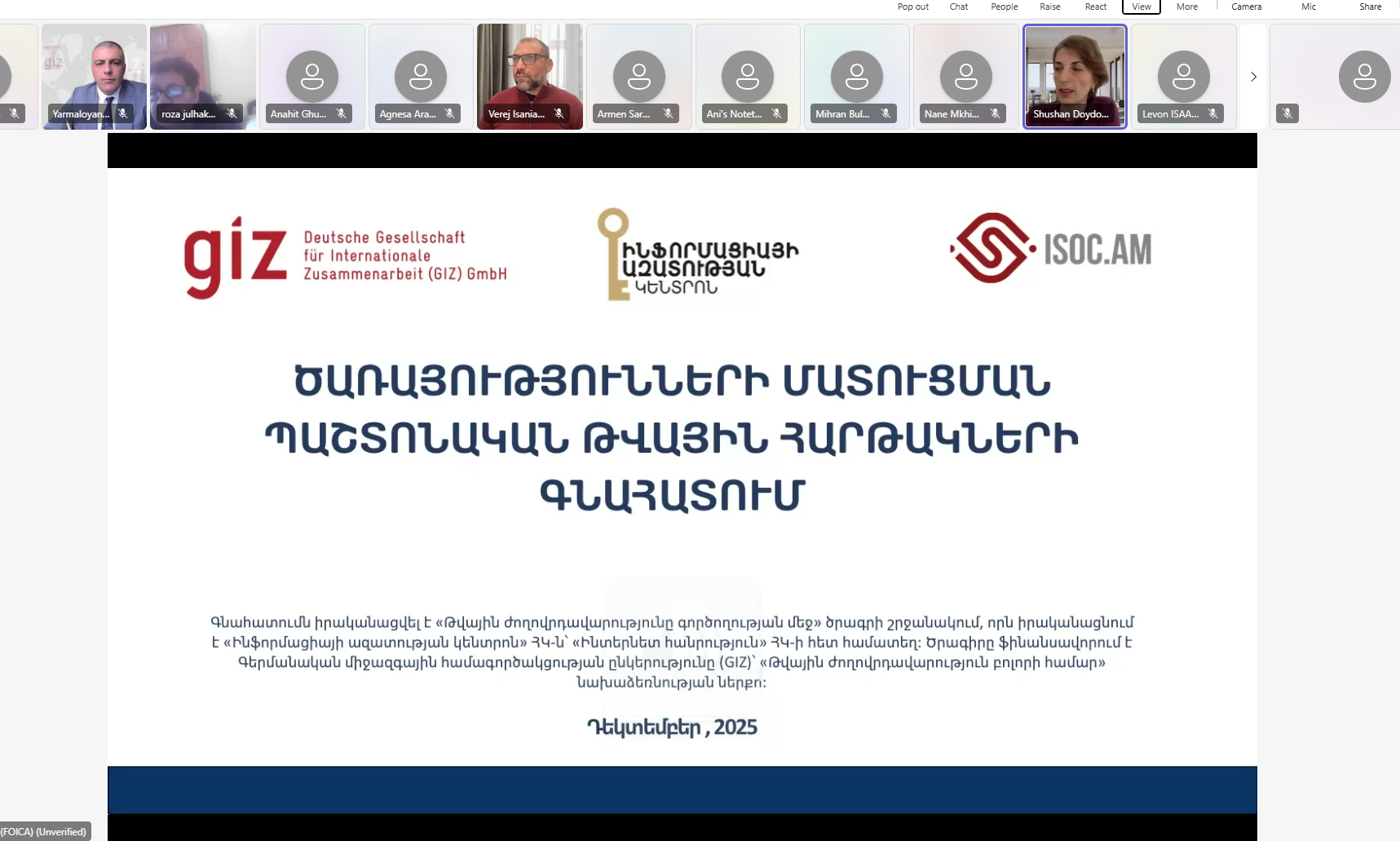For creating strategic responses and building national resilience against information disorder, at present, the Armenian Government is discussing the national Strategy and the Action plan against disinformation developed by the Freedom of Information Center (FOICA). The strategy unites the efforts of the government, civil society, and citizens to combat disinformation in the country.
The coordinated response is built upon three strategic pillars: a) Strengthen the capabilities of state institutions of Armenia to detect, analyze, and expose disinformation; b) Improve cooperation and mobilize the private sector to tackle disinformation; and c) Raising awareness and level of education on media freedoms and media literacy by constituting societal resilience towards disinformation.
The document defines the strategic directions of combating disinformation. It envisages a complex of urgent and immediate actions to protect the Republic of Armenia, its institutions, and its citizens from disinformation. Communication is one of the essential directions in the toolkit for combating disinformation. As a first step, it is planned to Improve the strategic communication in the government agencies, strengthen the human, financial, and technical resources of the communication subdivisions, improve the proactive transparency of government agencies, as well as it recommends introducing a self-assessment and evaluation system of transparency and access to information in the government agencies.
Government agencies will undertake ambitious steps to fully publicize official documents of public interest, both upon their initiative and based on inquiries, to promote open and efficient governance and prevent the release of false information. The purpose of proactive publicity is not only to spread anti-propaganda but also to deliver the facts to the public as fully disclosed open data promptly for the “other side of the story” to form as a countermeasure, which citizens must comprehend before encountering false information.
The 2nd pillar of the strategy is envisioned to foster cooperation with fact-checking platforms, to form cooperation to promote co-regulation and self-regulation in the media field, and to engage and mobilize the private sector. Thus, the main goal of the 2nd direction of the strategy is to ensure effective cooperation with all beneficiary groups and individuals as well as to establish the necessary mechanisms for collaboration for the implementation of the national strategy. The role of the private sector is also key in combating disinformation. Through active cooperation with both the government and civil society, private IT companies can take over the role of developing innovative tools against disinformation. Social media platforms, search engines, and online advertising are widely used to spread disinformation. Advanced technologies can both contribute to the spread of disinformation and become a vital tool in the fight against it. Private companies can play a particularly important role in the development of useful tools through automated solutions and artificial intelligence for combating disinformation. The availability of state funding or grants from international organizations can motivate private tech companies to initiate effective programs for the local market.
And finally, under the 3rd pillar it is planned to implement activities aimed at the development of media literacy, in particular, it is envisioned the development of a state strategy for media literacy and coordination, integration of media literacy in general education, conducting trainings for teachers, working with groups excluded from general education, training, and capacity building for public and community employees.
Greater public awareness is essential for improving societal resilience against the threat that disinformation poses. The starting point is a better understanding of the sources of disinformation and the intentions, tools, and objectives behind disinformation, but also of our vulnerability. Building resilience also includes specialized trainings, public debates as well as other forms of common learning for the media. It also involves empowering all sectors of society and, in particular, improving citizens’ media literacy to understand how to detect and fend off disinformation.
The present Strategy sets out key actions to tackle disinformation in a coordinated approach of the Armenian institutions and civil society. Hopefully, within 3 years of implementation practice in 2023-2025, we can achieve the expected results set for the strategy and will be able to share our lessons learned.








